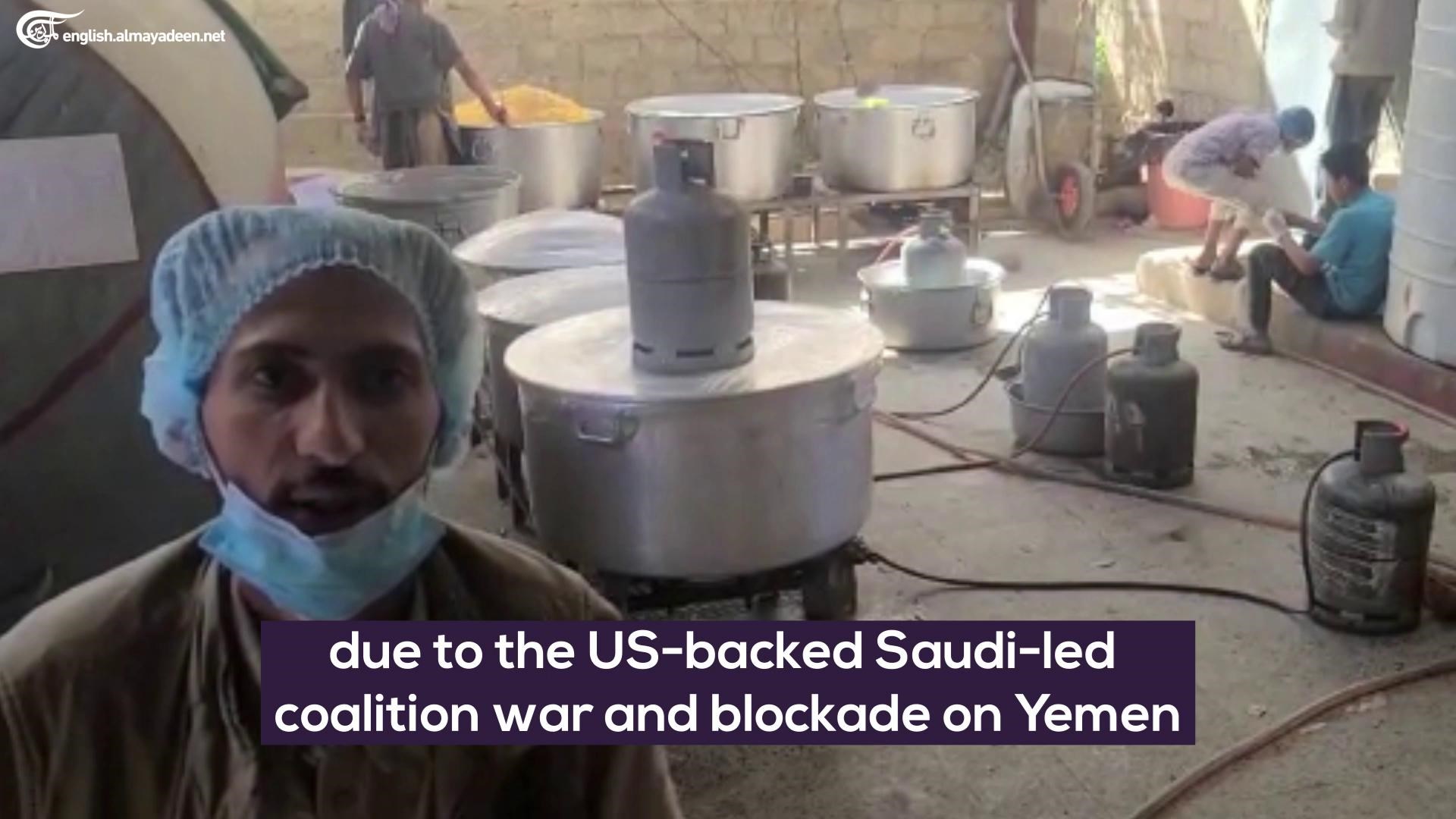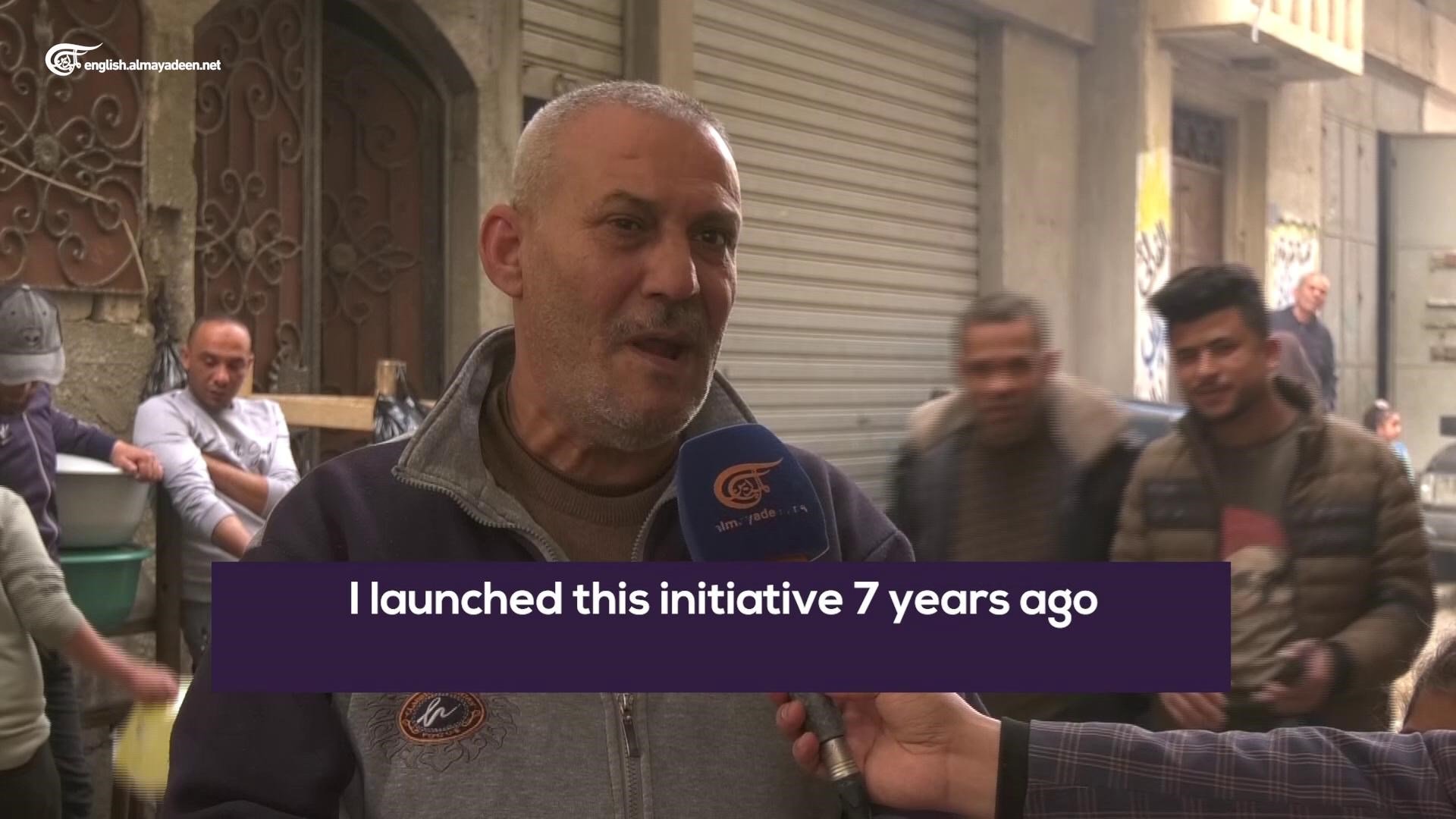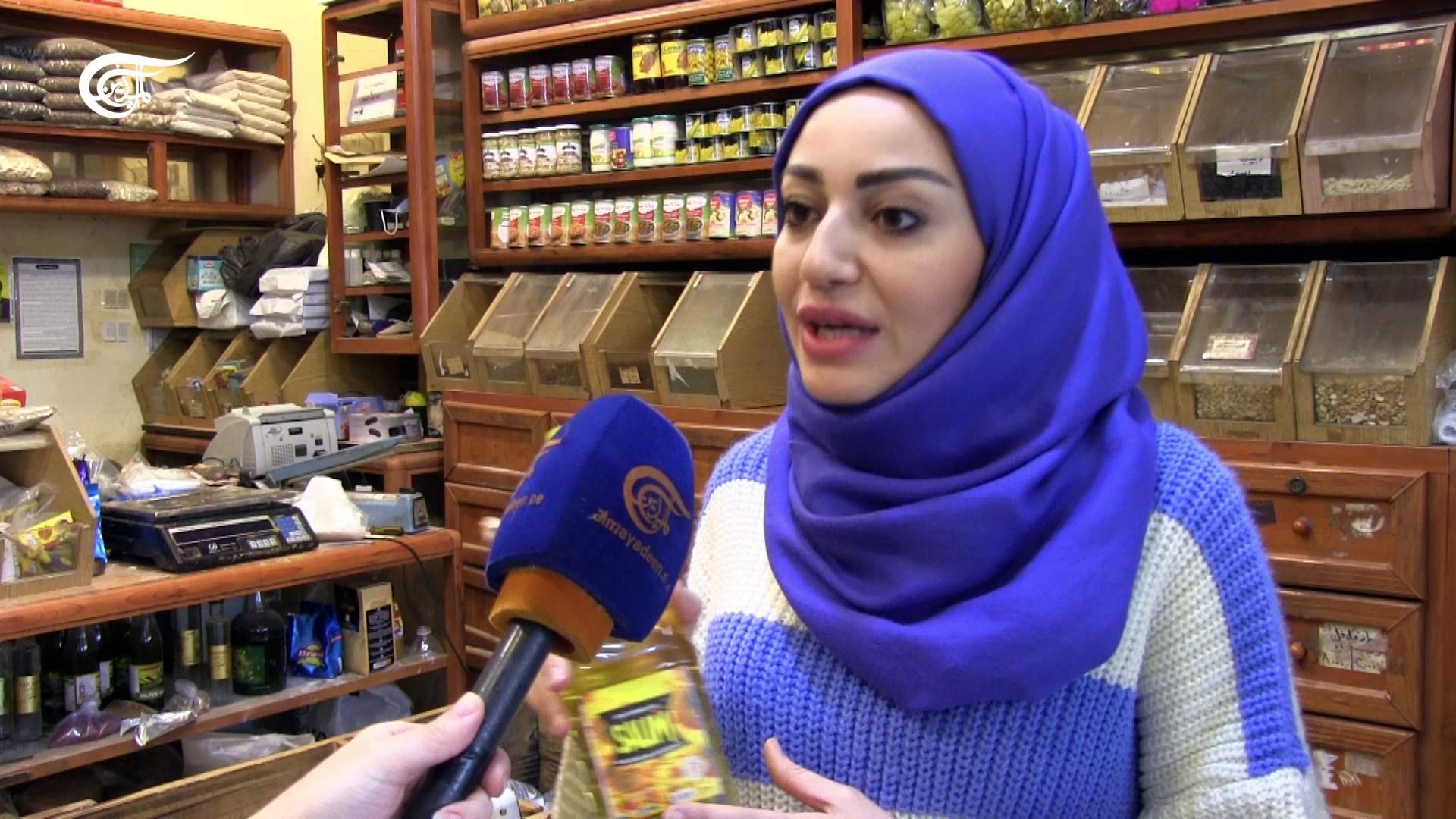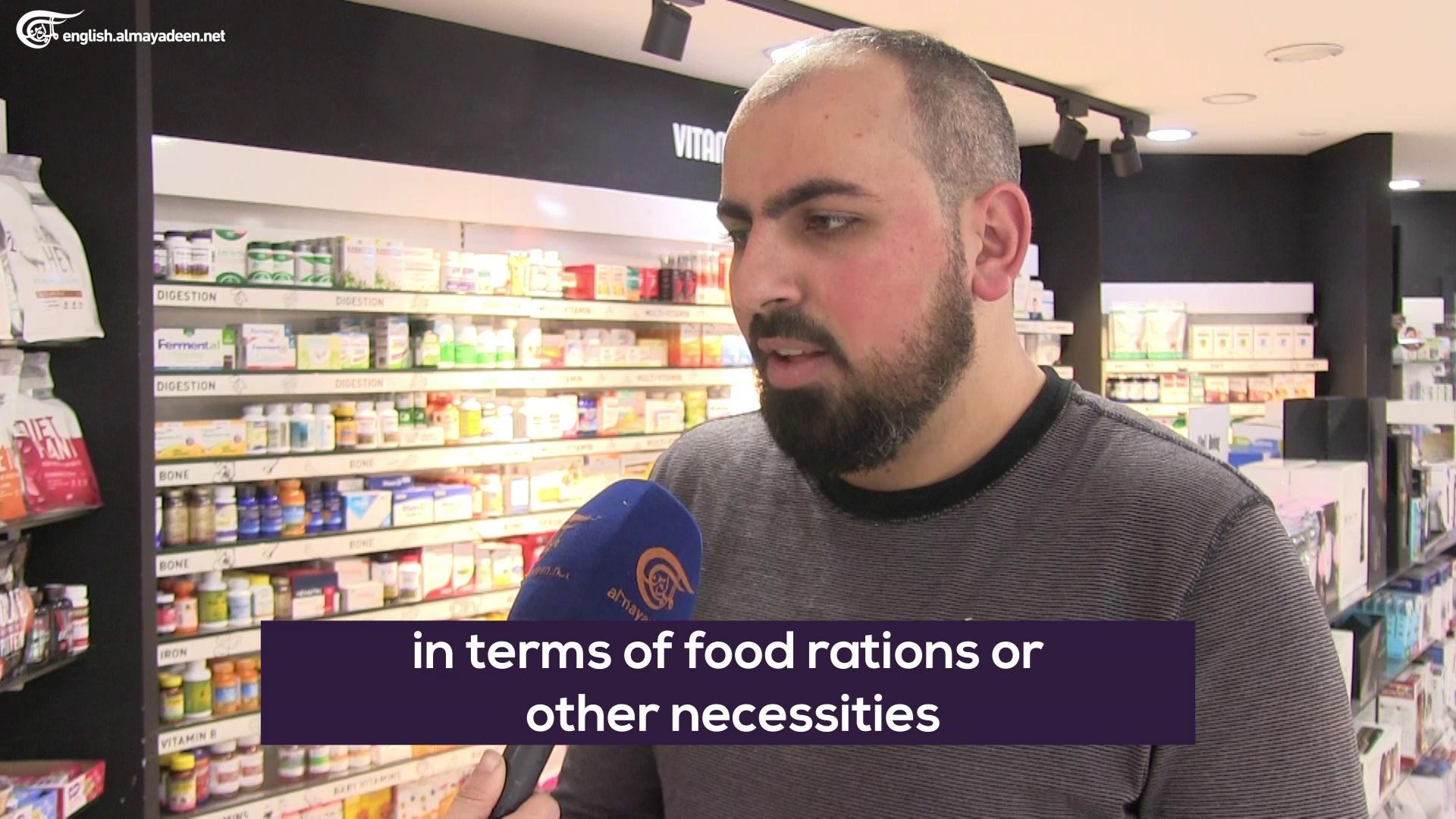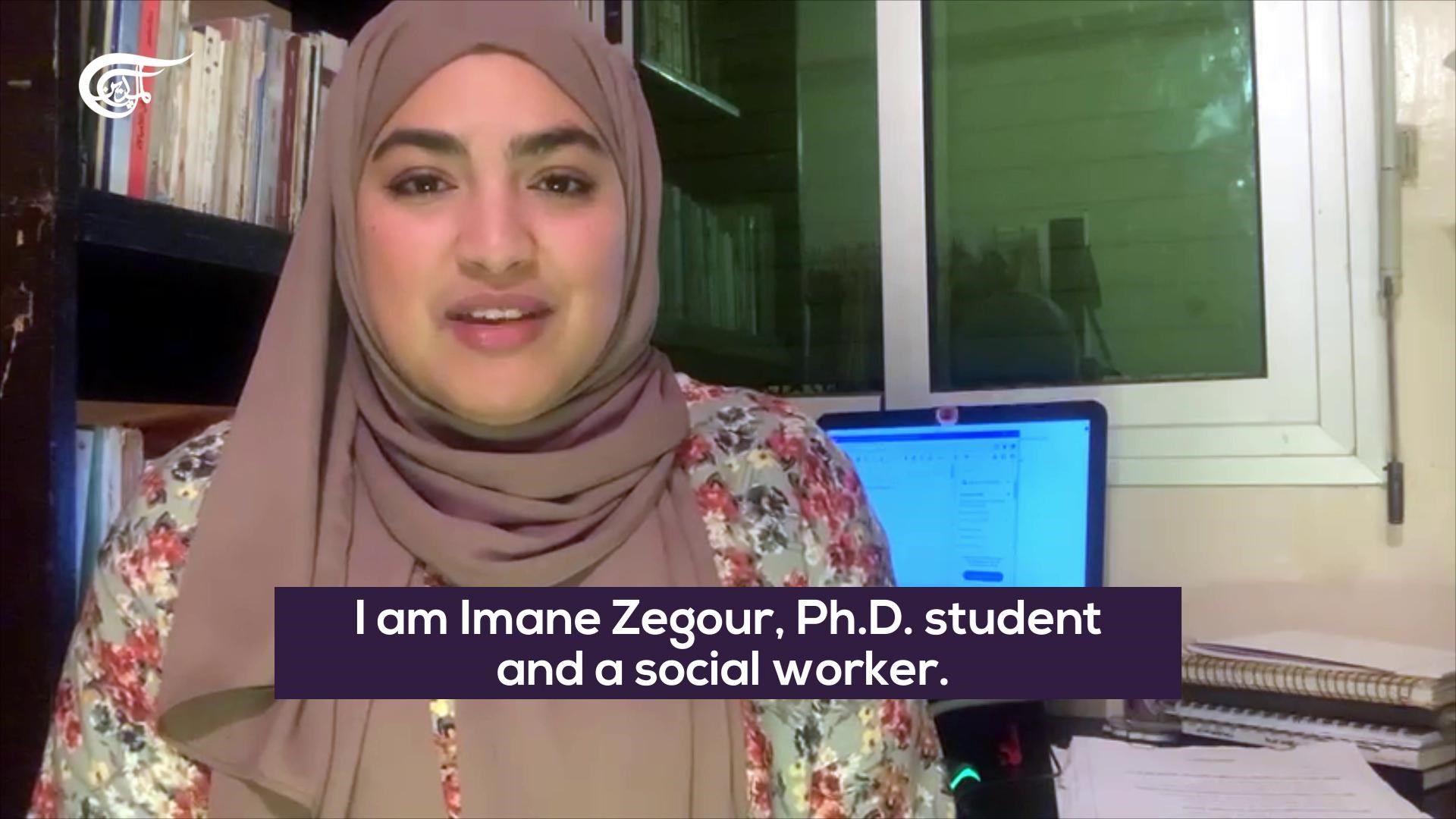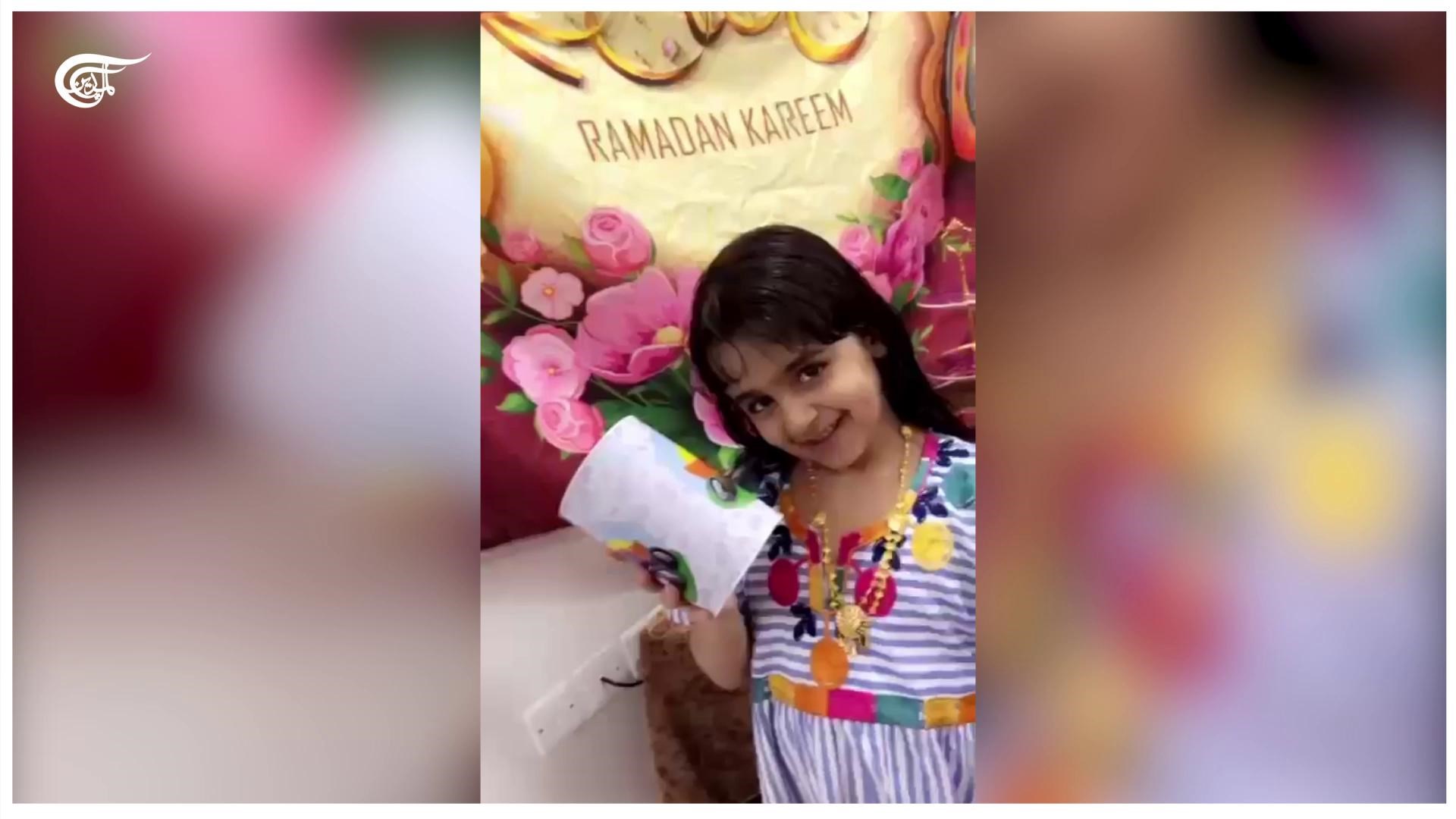Despite everything: The Arab world models the gift of giving in Ramadan
From Lebanon, Morocco, Palestine, Yemen, Bahrain, and other Arab countries, young men, women, and even children with modest capacities persevered to come up with charitable initiatives during the holy month of Ramadan.
-

Ramadan has a plethora of charitable initiatives to reflect upon, most notably from the Arab world.
Muslims' fasting during Ramadan is an act of worship that gives them the chance to be closer to God and more compassionate to those in need. The holy month has a plethora of charitable initiatives to observe and cherish, most notably in the Arab world.
One of Ramadan's beautiful features is the act of giving. As a result, Muslims eagerly rush to give to those who are in need domestically and around the world, focusing on the noble consequence of charity and empathy for the poor during the holy month of Ramadan.
From Lebanon, Morocco, Palestine, Yemen, Bahrain, and other Arab countries, young men, women, and even children with modest capacities persevered to come up with charitable initiatives. The initiatives took many forms: from Iftar camps to care packaging with all the food essentials, passing by suhoor drives, medicines, cash money, and much more.
Ramadan Initiatives in Yemen: Hope amid the world’s worst humanitarian crisis
For the past seven years, Yemen has been enduring aggression by the Saudi-led coalition which butchers civilians on a daily basis, destroys civilian infrastructure and residential areas, and starves innocent Yemenis - all amid international silence and complicity.
The International Organization for Migration has recently warned that over 25.5 million Yemenis are living in poverty as a result of Saudi-led aggression.
However, Hammam Hassan, a journalist and social activist at Hamza’s charitable kitchen initiated by the young residents in Sanaa to provide aid to their people amid the US-backed Saudi-led coalition war and blockade on Yemen and to reinforce social solidarity.
-
Hammam Hassan, Journalist, and Social Activist, from Sanaa, Yemen.
Hamza’s charitable kitchen provides food for 1,500 families in one day, with a budget of approximability $1,100.
In an interview with Al Mayadeen English, Hammam stressed that the initiative has no major funding either from the governmental or international side, adding that the funds come from our society, youths, and benefactors only.
“We have around 30 to 40 workers who voluntarily contribute free of charge, from the beginning of the holy month of Ramadan till its end,” he concluded.
Ramadan Initiatives in Palestine: Giving under occupation, blockade
The Gaza Strip is experiencing a chronic humanitarian crisis, one that is affecting the livelihoods and access to basic services of its two million residents. In defiance of all the hindrances and with his modest capabilities, one Palestinian man from the Al-Shuja'iyya neighborhood in Gaza launched an individual initiative during the holy month.
Al-Hajj Walid Al-Hattab told Al Mayadeen English that he distributes meals to the people of his neighborhood and to every passerby with the advent of Ramadan.
-
Al-Hajj Walid Al-Hattab from Gaza Strip, Palestine.
“Of course, the situation in Gaza is difficult because of the suffocating blockade imposed by the Israeli occupation on our people and our government,” he stressed.
Al-Hajj Walid went on to say that the aim of this initiative is to strengthen family bonding, social compassion, and empathy.
He sends a message to all families that are well off to look after their brethren in need, mainly low-income families.
“This month is the month of giving, and I am addressing everyone who is capable of helping others in need to do so. I launched this initiative 7 years ago, with my own efforts and with the help of God, first and foremost. I ardently wait for the month of Ramadan in order to put this charitable initiative into action,” he concluded.
Ramadan Initiatives in Lebanon: Against all odds
In light of the worsening economic crisis in Lebanon, families are spending five times the minimum wage solely on food, according to a study by the American University of Beirut. Meanwhile, the inflation rate keeps on rising as the national currency devaluates.
Since the summer of 2019, Lebanon has been facing an economic collapse, considered one the worst since the mid-19th century according to the World Bank. More than half the population is now under the poverty line, and the Lebanese Pound has lost more than 90% of its value against the dollar.
In an interview with Al Mayadeen English, Farah Atoui, a Lebanese TV host and a social worker, shed the light on her personal initiative at the time of the unprecedented economic crisis in Lebanon.
-
Farah Atoui, TV host and social worker from Beirut, Lebanon.
Farah said that “this initiative started since the beginning of the crisis two years ago and is not exclusively held in Ramadan. Nevertheless, the importance of the holy month in Islam is well known, encouraging people to unite in order to offer help to one another, thus representing the beautiful virtue of giving in Islam."
Farah has also shared her experience as she strives to supply underprivileged Lebanese people with food items at reasonable prices.
The young social worker also detailed how hard it is for families to provide the traditional Lebanese Iftar meal, paying six times more than they used to pay two years ago not to mention their inability to buy basic needs like bread.
Meanwhile, the reality of the medical shortage is also alarming in Lebanon. For context, due to the depreciation of the Lebanese currency, pharmaceutical importers in the country are heavily indebted to pharmaceutical companies abroad, which has resulted in the country's drug imports being halted.
In an interview with Al Mayadeen English, Mohammad Abbas, a Lebanese social worker, highlighted this issue, saying that “good deeds, in particular, are doubly rewarded during the holy month of Ramadan. I began my own initiative to secure food rations. However, I soon found out that many people in Lebanon have other urgent needs, such as medicine, most notably those suffering from chronic and incurable diseases such as diabetes, cholesterol, and cancer.”
-
Mohammad Abbas, Social Worker, Beirut, Lebanon.
With so many overlapping crises in Lebanon, large parts of the Lebanese population suffer from cardiovascular diseases such as coronary artery disease, hypertension, and diabetes. A medication shortage could have life-threatening consequences for the thousands of people who take multiple medications to treat complex illnesses.
A recent report by the UN showed that two-thirds of the Lebanese population is now impoverished as a result of the economic crisis which further aggravated the medical situation. As a result, when medicine is scarce, the high costs make it unaffordable for many Lebanese to pay for it.
Despite his modest capabilities and countless other challenges, Mohammad is exerting strained efforts to provide medicine to those who are unable to do so in light of the tormenting crisis.
The young Lebanese social worker recalls that the month of Ramadan is not restricted to a single group.
“This is purely a humanitarian matter. I have prior experience, and I have assisted people from all Lebanese regions, as well as people of other nationalities. As I previously stated, the ability to help everyone is hampered by a lack of financial resources. Some people limit the amount of assistance provided in terms of food rations or other necessities. Humanitarian work engulfs all those in genuine need of assistance,” he concluded.
Ramadan Initiatives in Morocco: Goodness continues to spread
Morocco's economy has suffered significantly as a result of the COVID–19 pandemic, with the country facing its first recession in more than two decades in 2020. Despite all this, Imane Zegour, Ph.D. student and a social worker from Morocco, succeeded in carrying out her initiative with a group of Moroccan youth to cover iftar expenses for the holy month of Ramadan.
In an interview with Al Mayadeen English, Iman shared her initiative which is titled “Help your brother": “The aim of this campaign is to help poor and needy families, widows, and divorcees who, in light of an unprecedented spike in prices, are experiencing an economic crisis that hit Morocco and other Arab countries."
-
Imane Zegour, Ph.D. student and social worker from Morocco.
The campaign, which received wide interaction inside and outside Morocco, aims at reinforcing the values of cooperation, solidarity, affection, and volunteerism, which in turn asserts that the world is still well and that we are a society in which goodness continues to spread, according to Iman.
Iman told Al Mayadeen English that these campaigns, which began spontaneously and helped a large number of families, continue.
Ramadan Initiatives in Bahrain: Teaching children the spirit of giving
The act of giving is not exclusive to adults, many families make the holy month of Ramadan an opportunity to teach children to be compassionate toward those who are in need and show them the importance of thinking of others, and modeling kindness.
-
Liyana Al Mutawaa from Bahrain.
Lilian Al Mutawaa, a Bahraini mom, launched her own personal initiative during Ramadan with her two daughters, Malika, 5 years old, and Liyana, 6 years old. The family saves money in piggy banks all year long to help people in need in Lebanon and Bahrain during the holy month.
All the interviewees shared their sheer happiness for fulfilling the needs of the less fortunate and spreading tears of joy and smiles.

 9 Min Read
9 Min Read
